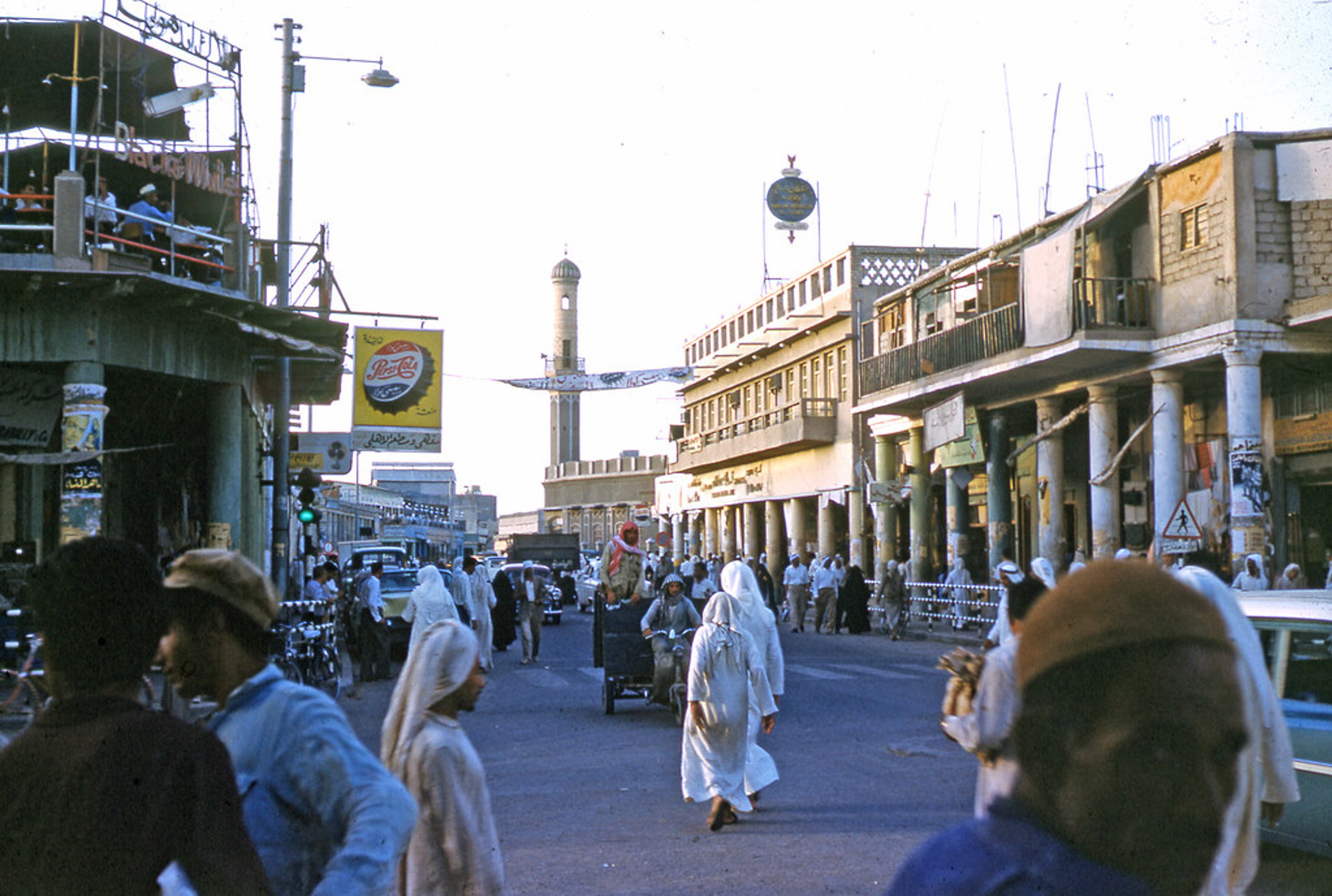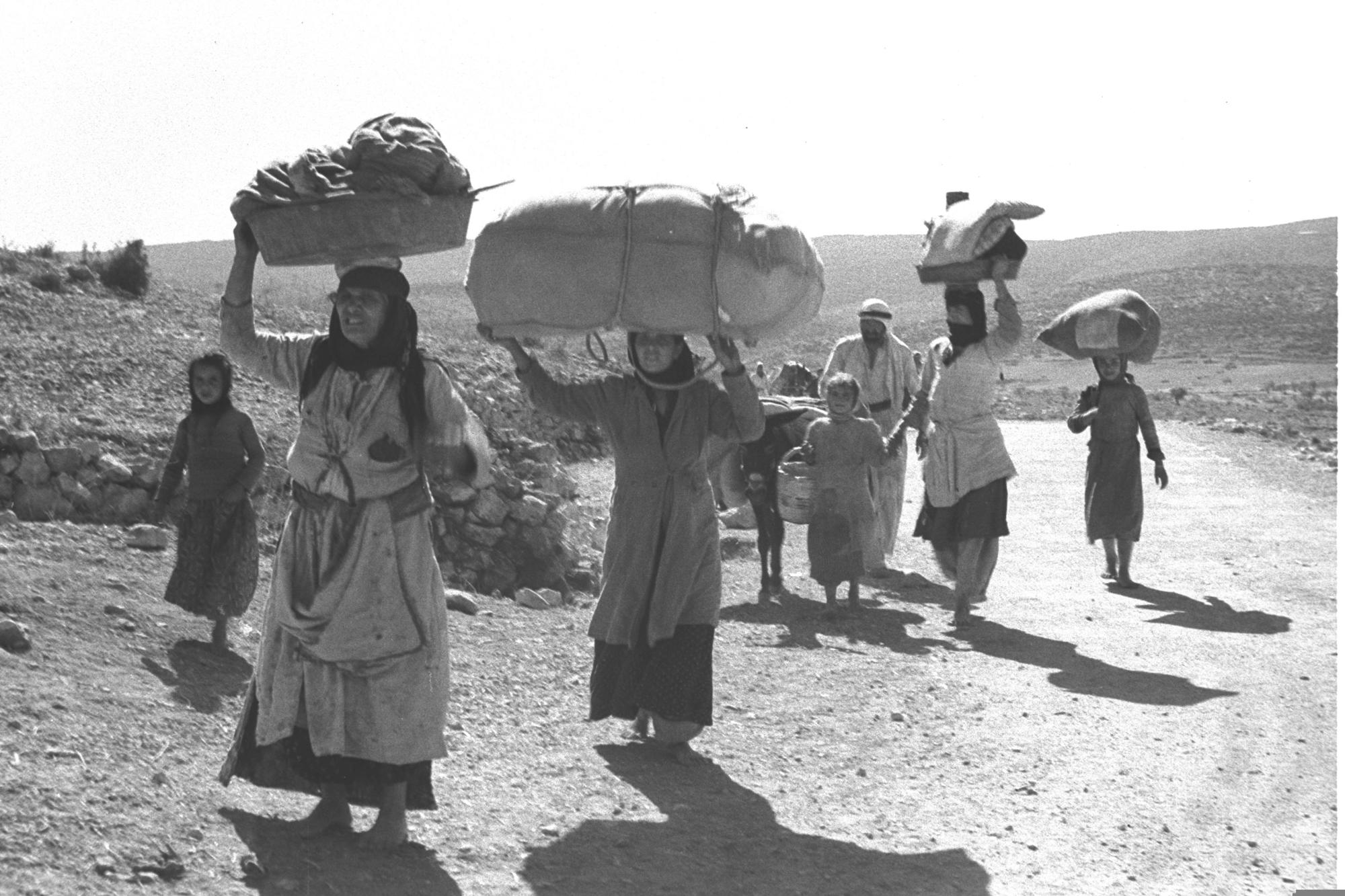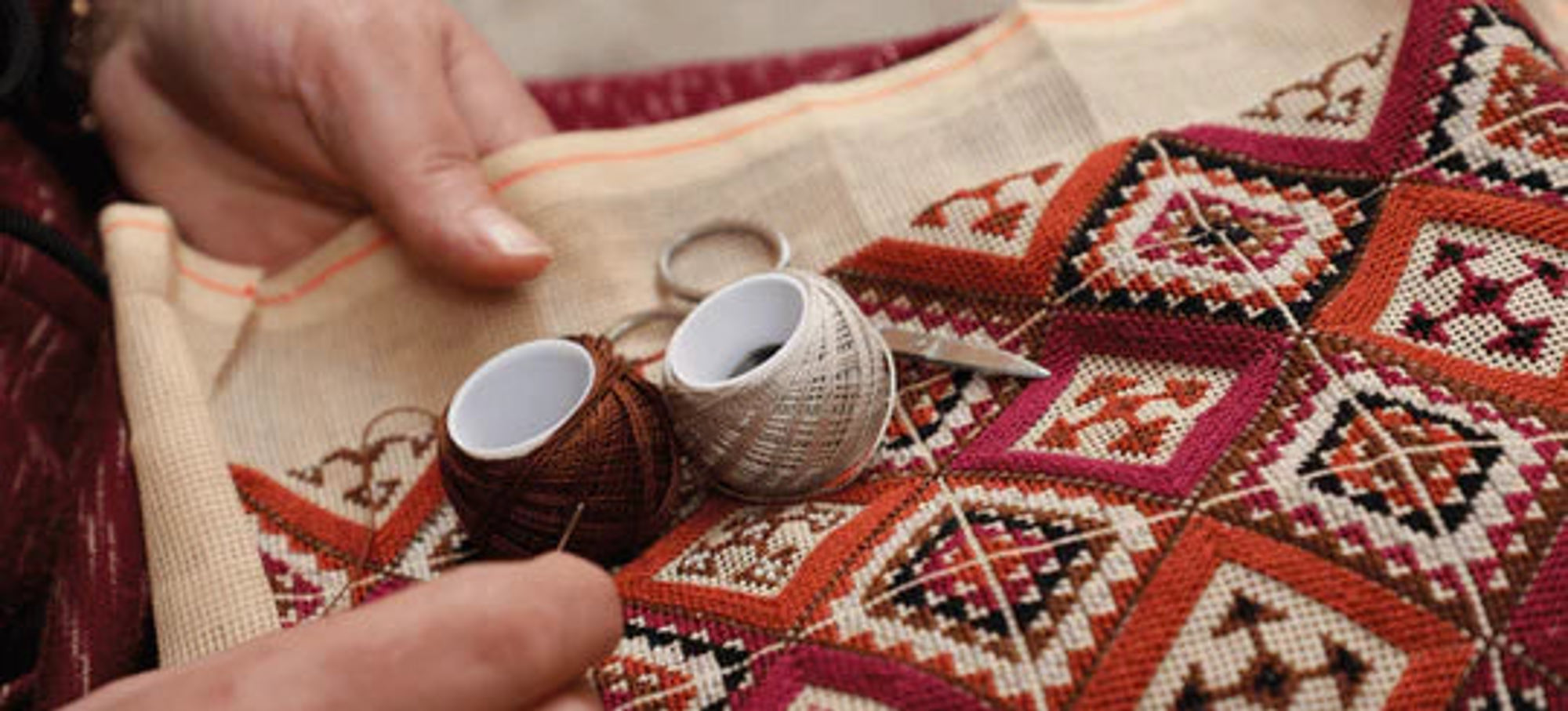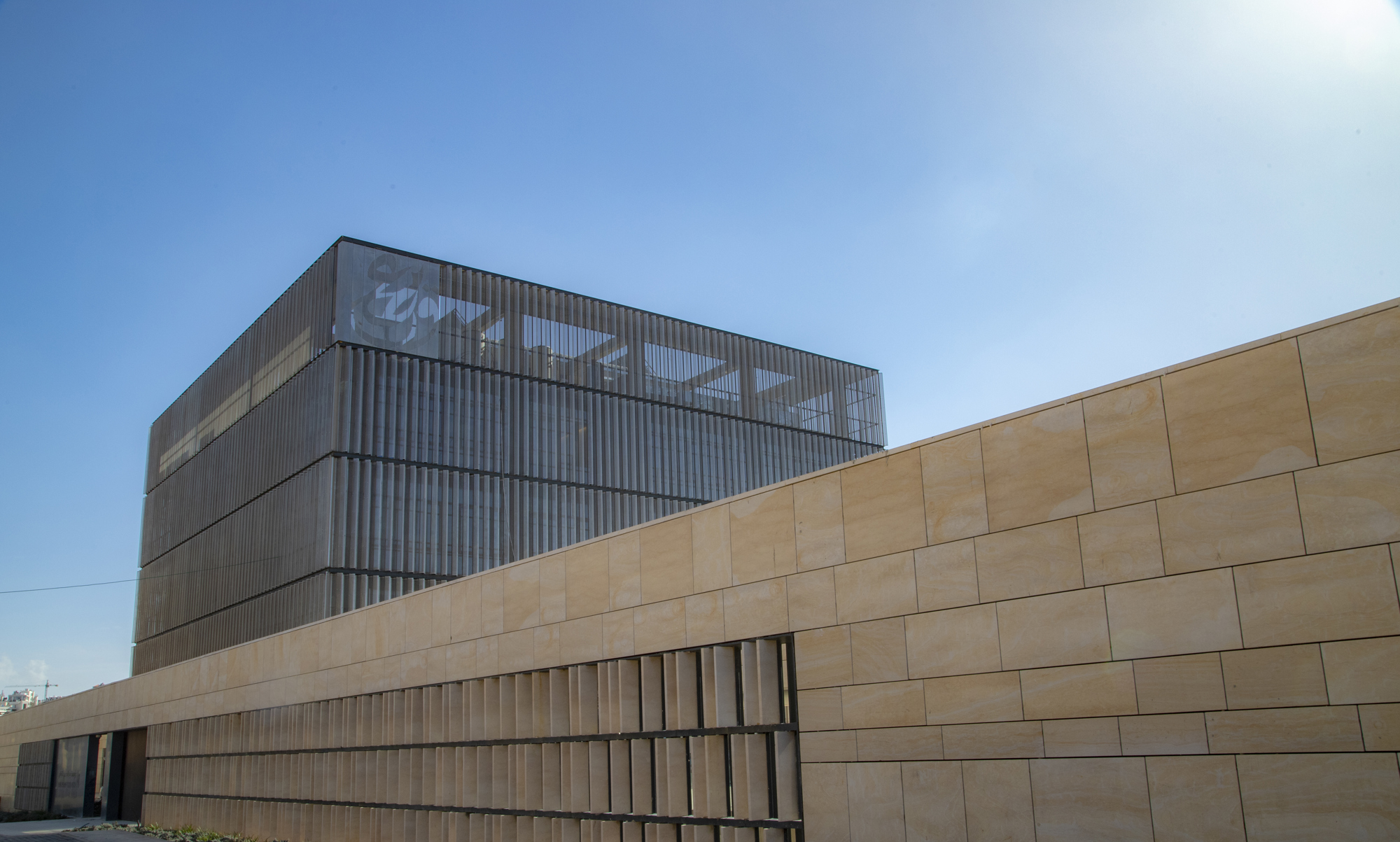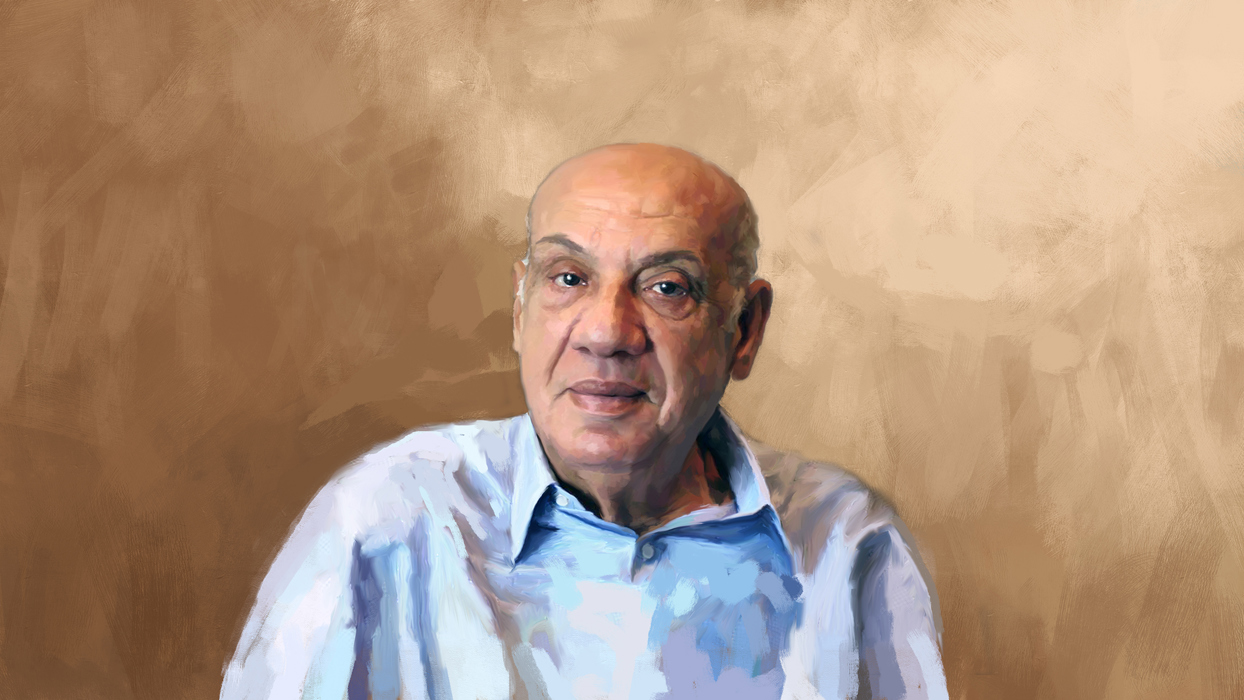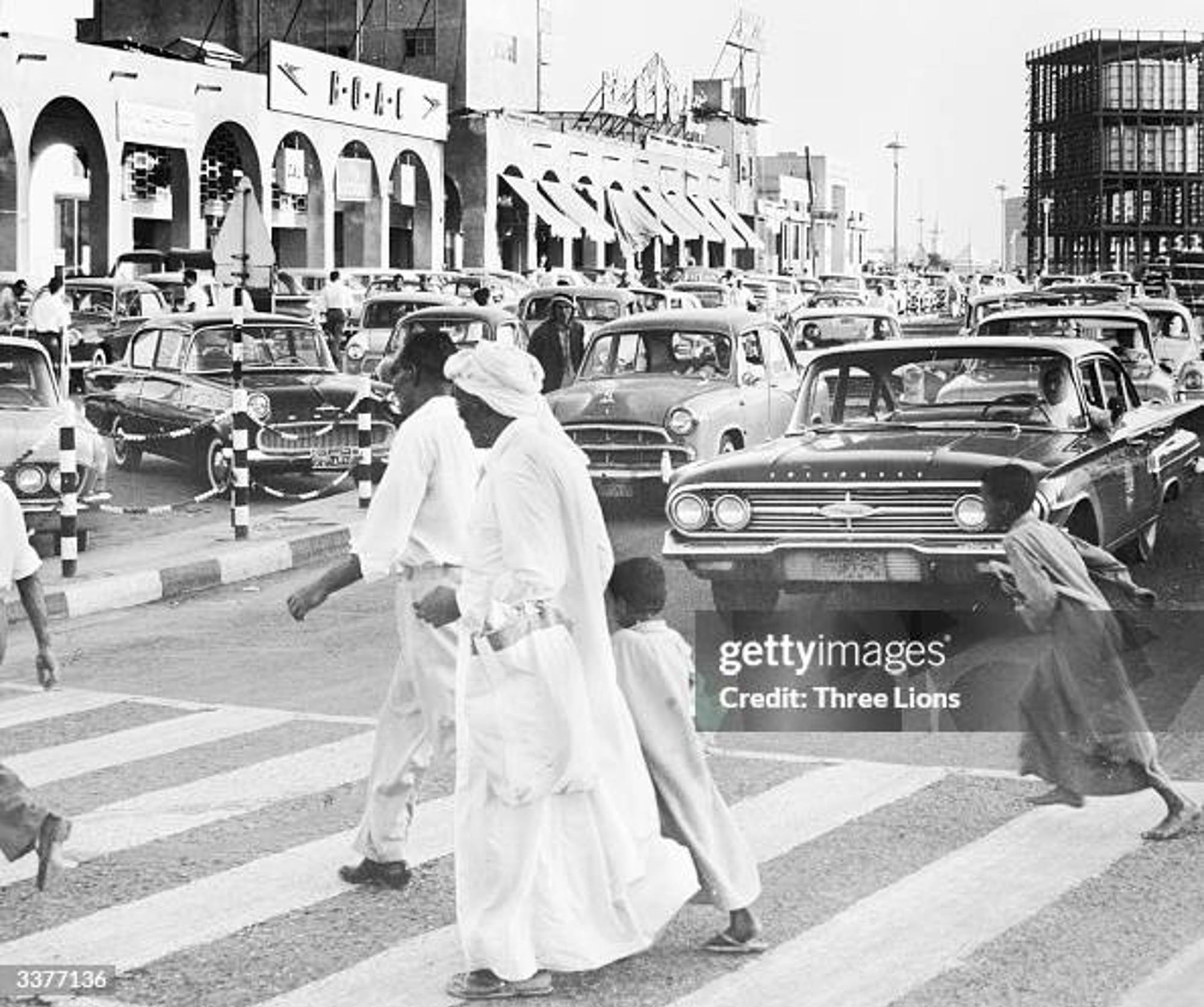
1950
1960
Getting established
Getting established
Al-Qattan marries Leila Al-Miqdadi in Kuwait, where they both work as teachers. Soon though, he is invited to work at the Ministry of Electricity and Water and later sets up his own construction company. Now with a steady income, Al-Qattan begins to take on the responsibility of supporting fellow Palestinians and providing funding for scholarships to promising students.
"The values I grew up with, which are rooted in Islam and other religions, are compassion and supporting the needy in one’s own society according to one’s means."
ABDEL MOHSIN AL-QATTAN
Al-Qattan moved to Kuwait to work as a teacher at the start of its oil boom when foreign workers were pouring into the country to help deliver an ambitious public works programme. Here, he met his future father-in-law, the renowned nationalist educator Darwish Al-Miqdadi who introduced him to his daughter Leila, herself training to become a teacher. They married in 1954.
Like her husband, Leila had also experienced significant upheaval due to geopolitical instability across the region. Born in Iraq, to where her father, esteemed educator Darwish Al-Miqdadi, had been exiled from Mandatory Palestine for refusing to salute the Union Jack, Leila and her family were forced to relocate multiple times; first to Iraq, then to Damascus and Beirut, before making a home in Kuwait (from where she would be later displaced during the first Gulf War).
A couple of years into his teaching career, Al-Qattan was invited by the government of Kuwait to work in the country’s new Ministry of Water and Electricity.
He rose through the ranks at the ministry to become director general and in 1963, having become a Kuwaiti citizen for his services to his adoptive country, he took another leap, leaving behind his safe ministry job and partnering with Kuwaiti businessman Hajj Khaled Youssef Al-Muttawa, to set up Al-Hani Construction and Trading Company.
According to his eldest son, Hani, when Al-Qattan resigned from the ministry to set up his own business, he was invited to meet the then-Emir of Kuwait, Abdullah al-Salim al-Sabah, and offered the chance to become an ambassador,
“This tells you how highly he was regarded,” explains Hani. “Both in terms of ability and integrity. But he turned down the offer because he wanted to have his own business to generate wealth to be able to help other Palestinians, and that tells you a lot about his deep sense of responsibility.”
During this period, Al-Qattan found himself navigating two distinct worlds. On one hand, he had become a successful businessman in Kuwait, but he was also deeply committed to fighting for the liberation of his homeland, to supporting its exiled people and to preserving their culture and identity.
“This demanded principled courage and determination but also compromise,” writes one of his sons Omar after his death. “How he came to identify and often skilfully marry these contradictions—progressive thinking vs conservative pragmatism, the fight for emancipation vs the love of tradition, the logic of political and social engagement vs that of business, hope vs despair—would characterise his life trajectory.”
Al-Qattan’s business, which is still operating today as the Al Hani Group and now chaired by Omar, is one of the most successful contracting companies in the Arab world. Some of its more notable projects include the iconic Jaber Al-Ahmad Cultural Centre, Al Shaheed Parks 2 and 3, Kuwait’s largest urban park; Bayan Palace Conference Hall; Kuwait Central Courts Complex; Kuwait International Airport; and several buildings of Kuwait University’s new campus at Shadidia.
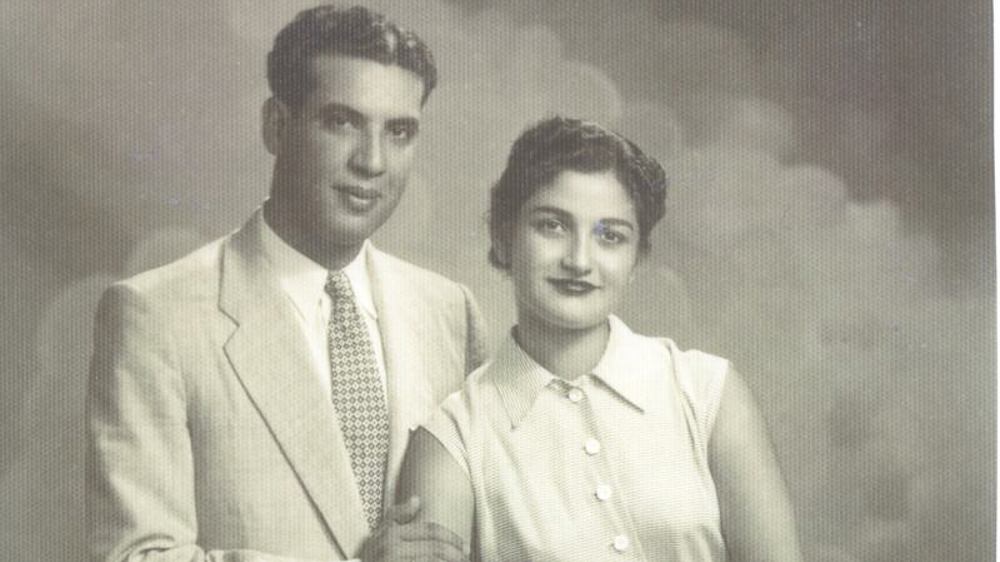
Abdel Mohsin and Leila, pictured above in their engagement photograph in Beirut, 1954, met in their country of refuge, Kuwait, while working as teachers. Courtesy of A M Qattan Foundation
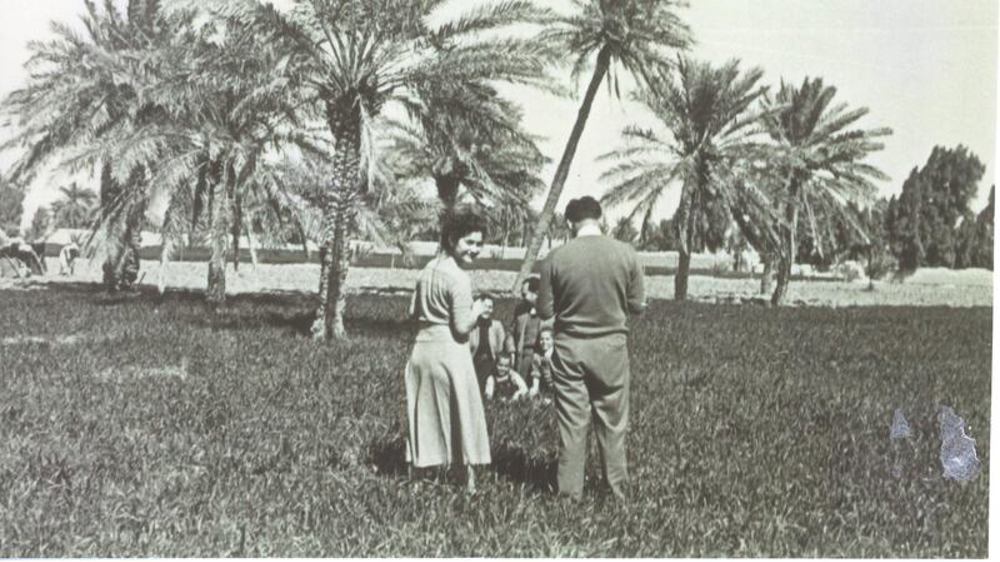
The growing Al Qattan family in Kuwait in the late 1950s, before moving to Lebanon for the sake of the children's education. Courtesy Courtesy of A M Qattan Foundation
Al-Qattan’s contribution to Kuwait and its economic development was rewarded with citizenship, giving him and his young family freedom of movement denied to many exiled Palestinians at the time.
It was at this time that Al-Qattan and his wife began to support young Palestinians at home and abroad by providing funding and scholarships to help them further their education.
“The values I grew up with, which are rooted in Islam and other religions, are compassion and supporting the needy in one’s own society according to one’s means,” Al-Qattan said in an interview in 2011.
He said his “first priority” was to help finance the education of his immediate relatives, children and then grandchildren, but he was also very generous to many Palestinians beyond his family.
“My father was a very, very smart man. And he had a vision,” recalls Najwa Al-Qattan, his eldest daughter, who says he would often talk proudly of his late father’s business acumen, despite being illiterate.
However, Najwa sees her father’s interest in education less about changing family narratives and more about uplifting wider Palestine. “My father really believed that education was the only thing Palestinians – with no land or state - could truly own and he saw it as a way for people to make money and survive as families, as communities, as a nation.”
Najwa, who now chairs the A M Qattan Foundation, and was Professor of Ottoman and Modern Middle Eastern History at Loyola Marymount University until her recent retirement, with a B.A. in Philosophy from the American University of Beirut, an M.A. in Philosophy from Georgetown University, and a Ph. D. in History from Harvard University, knows she benefited from her father’s passion for education.
“It didn’t matter that I was a girl,” she says. “He really supported me at a time when other wealthy families were not encouraging their girls to study. For him, my academic success was a Palestinian academic success. That’s how he saw it.”
